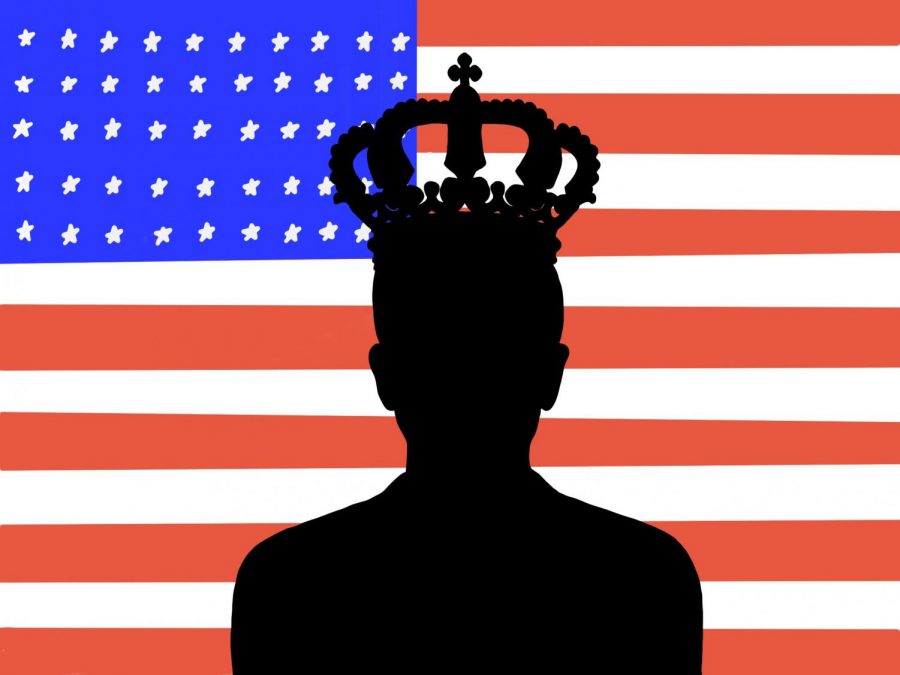Democracy Challenged: The Rise of Authoritarianism in the United States
The political crisis impacting the United States has left many of us examining the vulnerabilities within our nation’s political system. More than two months have passed since the fiercely contested U.S. presidential election, yet the validity of its results continue to be questioned. Even now, as our nation transitions to a new government, it remains uncertain whether the political aftermath of Trumpism will continue to erode American democracy.
With democratization engulfing much of the world, and with the foundations of our country being rooted in democratic ideals, it is logical to think that the idea of the United States becoming authoritarian is far-fetched. However, the presumption that our founding principles would prevent a change in redefining them and what they represent is naive. “The notion that Western countries are clever and strong enough to both recognize and resist the grip of totalitarianism is a dangerous myth,” Téa Obreht said, author of “The Tiger’s Wife.” Obreht continues by saying that this idea is “a fairy story, if you will—one to which we are ironically susceptible, because being shaped by books like Animal Farm deludes us into thinking we are sufficiently armed.” The 1949 book “Prophets of Deceit: A Study of the Techniques of the American Agitator” by Leo Löwenthal and Norbert Guterman demonstrates the dangers of such a myth perfectly, by describing what they called the “authoritarian populist agitator.” The “authoritarian populist agitator” is a carefree politician who obscures ideological lines; taking advantage of political dissention, creating and demonizing the different ‘other’ and promoting conspiracy theories. The agitator, as Löwenthal and Guterman put it, encourages his followers to believe that the system is deceptive, untrustworthy, hypocritical and violent—the same criticisms that are ironically celebrated and praised when they are used as a way to further the agitator’s agenda. Not-so-coincidentally, this agenda is fueled by deception and hypocrisy, the very things that the agitator and his followers claim to condemn.
A contemporary example of this is the recent attack on the United States Capitol. A violent rampage, instigated by delusive and insubstantial claims of voter fraud by the loser, President Trump, demonstrates how an “authoritarian populist agitator” can trick his supporters into accepting the very situation that caused their social malaise in the first place. “They are invited, not to organize rational responses, but to act out their impulses,” Löwenthal and Guterman write. This makes the hypocrisy of Trump supporter’s reactions to last year’s Black Lives Matter protests more fathomable: Impulsivity, as long as it defends the underlying “us versus them” narrative, is, if anything, the only thing that truly justifies the ideological inconsistencies that are ostensible between Donald Trump and his supporters. Furthermore, it is not “violence” or “systematic deception” that Trump supporters deplore—if it was, my manager wouldn’t have commended the violent Capitol riot and described it as “patriotic,” while at the same time criticizing those who participated in BLM protests only eight months prior. Rather, it is the different ‘other’ that they condemn, the adversary that challenges their ideological confusion, the individual who threatens their “utopia.”
The political satire “Animal Farm,” written by George Orwell, was published in 1945. The fable, considered one of Orwell’s greatest works, criticized the history and rhetoric of the Russian Revolution, their perversion of ideals and their subsequent reconstructions of Russia’s insurrection. One of the most compelling features of Orwell’s fairy story is the abuse and manipulation of language that his allegorized characters employ in order to justify their behaviors—the very behaviors that they once condemned. I am embarrassed to admit that I only recently read this fable, but perhaps for one reason or another my consumption of it came at the perfect time. The abrupt changes in fundamental principles, the ones in which Orwell’s characters established their revolt on, seemed all too familiar. “America is, and must always be,” Donald Trump declared, “a nation of law and order.” Yet this fundamental principle, the one which Donald Trump based his entire presidency on, seemed to abruptly dissolve on Jan.6. “‘Law and order’?” Stuart Stevens said, a longtime Republican strategist. “Here you have a police officer murdered on Capitol grounds, and the White House doesn’t even acknowledge it. It’s incredible.”
I remember my high school civics teacher saying that “American authoritarianism” was an oxymoron. At the time I agreed. Yet, as I sit re-reading Orwell’s “Animal Farm,” I can’t help but wholeheartedly disagree with that statement now. There are too many things that Donald Trump and his supporters have done that resemble that of authoritarianism: Previous allies of Trump, such as Mike Pence, were suddenly being deemed frauds and untrustworthy because they wouldn’t help overturn the election results. Capitol insurrectionists exclaiming online that they “hoped to kill or wound the vice president,” and subsequently chanting “hang Mike Pence!” during the riot. Trump declaring all journalism to be ‘fake news,’ except, of course, the news that praised him. The striking difference in rhetoric and reaction towards the Capitol Hill riot and last year’s BLM protests. The contradictions in principle and the absence of logic. The condemnation of anything and everything that opposes Trump—or, as Löwenthal and Guterman put it, the different ‘other.’
“American authoritarianism” is not an oxymoron at all. It is a feasible reality that looms beneath our democracy; an impending threat that has redefined an entire political party. “The creatures outside looked from pig to man, and from man to pig, and from pig to man again;” Orwell writes, “but already it was impossible to say which was which.” Rereading the words “American” and “authoritarianism,” I can now safely (if not sadly) say that it’s impossible to say which is which, too.
Your donation will support the student journalists of Saint Louis University.






Chris • Jul 21, 2021 at 5:27 pm
America slid into an Authoritarianism system. The question now is what direction do we go now? Do we go toward
“Totalitarian -fascism system or Democratic Socialism”. The countries in western Europe that have Democratic
Socialism are: Denmark, Finland, Norway, Sweden, Germany, France Ital Netherlands , Portugal, United Kingdom,
Tunisia and etc. “Authoritarianism, principal of blind submission to authority as oppose to individual freedom of
thought and action”.. Authoritarianism denotes any political system that concentrates power in the hand of leader, a small elite that is not Constitutionally responsible to the body of the people.
The Authoritarianism is Inflexible, oppressive , abusive, corrupt, does not follow the plain language of the law. Kiss good buy to the Democracy that refer to a form of government which the people have the authority to choose and decides on legislation for their destiny!
Mak Thorpe • Feb 12, 2021 at 4:20 pm
One of the advisors of the excellent Lowenthal book was Adorno, and for a similar pessimist view of the persuasive mechanisms used, see the critical theory argument by Peter E. Gordon in his chapter of the book: “Authoritarianism: Three inquiries in critical theory” (2019). His chapter “The Authoritarian Personality Revisited: Reading Adorno in the Age of Trump” is available online, a different revision from 2016, but available you google the essay title at site:boundary2.org
Due to your professional area of interest, I suspect you may be interested in portions of Tobin Smith’s book Foxocracy. He was a 14 year veteran of fox news and documents in his book the playbook for generating Outrage narratives. The interesting thing is is referencing of the neurophysiology in play in each step of the narrative- adrenaline in response to threat, dopamine during validation of “tribal orthodoxy”, ending with a rush of serotonin as the fight or flight response is unwound and powerful drugs preparing for imminent physical exersion/ possibly aggression must unwound. One dissertation I saw (by Manda Scott) compared the serotonin high comparable to that with a typical hit of cocaine or heroin, though I was unable to find that supported in the research she referenced. Perhaps it was a wrong citation and I didn’t clear it up. In any case, Smith has no background in science let alone neurophysiology, and he has zero citations in his book. But this area has been looked at by the researcher Scott cited (Westen- same author of Political Brain for non academic audience) as well as many others for approaching 2 decades. Citations to both writers may be found in wikipedia Outrage Porn article. I am skeptical of perspectives that attempt a singular reductionism, but it is an intriguing area of research opened up by recent advances in brain imaging. What Peter Gordon claims Adorno considered the thoughtlessness of entire cultures may be due to our incomplete emergence from more primitive neurophysiological mechanisms.
Perhaps from the evolutionary perspective, perhaps we should be not at all surprised that the age of reason did not magically erase these neurological mechanisms common to mammals which have been around for that last hundred million years or so. From this light, it is not that Adorno is being unrealistically / even pathologically gloomy, but that our sapient hubris required multiple cold buckets of water.